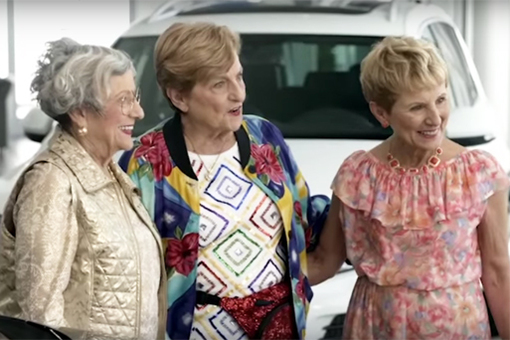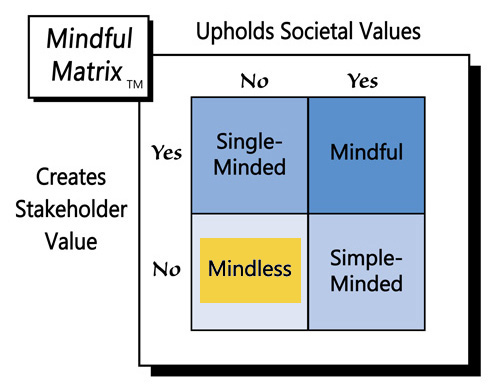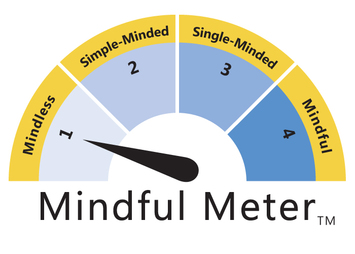America values youth. We dote over our infants and acquiesce to our adolescents. Of course, favorable treatment can be a good thing. What’s problematic, however, is when a specific segment is treated contemptously, which often is the experience of American elders.
So, if a society spurns senior citizens, what should its marketers do? Unfortunately German carmaker Volkswagen appears to follow the “When in Rome . . .” philosophy, at least as evidenced by its recent U.S. ad campaign.
The television commercials feature Mary, Josie, and Teresa, the three “Golden Sisters,” who have become documentary stars on the Oprah Winfrey Network (OWN). Although the three older women are ostensibly shopping for a new car in the ads, their attention more often focuses on the attractive young men who share the spots.
In one ad the sisters ogle the posterior of a handsome car shopper. As he bends over to checkout a Passat, the women make socially awkward and sexually suggestive comments such as “Year end, rear end, check-it-out,” “talk about turbo charging my engine,” and “gorgeous.” One of the sisters also asks him a question overladen with innuendo: “What kind of car do you like: new or many miles on it?”
Serious flirtation continues in a second ad that finds the three older women seated in a new Jetta with a good-looking car salesman riding shotgun. One of the ladies kisses her index finger and touches it to the lips of the young man as she asks him, “What about a deal?” The theme then shifts from sexuality to senility, as the ad’s dialogue suggests that the women are forgetful and confused:
“We’re twins, so could you give us two for the price of one.”
“Come on, give us a deal. Look at how old I am.”
“Do you come here often?”
“He works here, Terry. You work here right?”
“Okay, let’s get to the point. We’re going to take the deal.”
So, what’s the problem? All of us do and say silly things at times. It’s also true that many media, from internet ads, to TV sitcoms, to newspaper comic strips, poke fun of people in good taste. There are a few factors, however, that move the Volkswagen ads from funny to offensive.
First, the elderly ladies are the only ones made to look foolish in the ads. Besides being attractive, the young male actors are calm, cool, and collected. Meanwhile, each of the ad scripts leads the older women to act like bumbling idiots. The same selective satirizing is also evident in a recent Rent.com commercial in which a film crew surprises an elderly man taking a shower. Partially nude, he then toddles with a walker across a room in full view of a half dozen young people as he exclaims “I’m wet.”
Second, the Volkswagen ads reinforce negative stereotypes about older adults, i.e., that all are doddering and disoriented. While it’s true that our bodies and minds eventually give ground, many older adults remain physically fit and mental sharp for a very long time. And, even if individuals’ physical and mental faculties have begun to fail, is it right to ridicule them for such deficiencies?
Third, it’s worth asking how the Volkswagen ads would be viewed if actors from different demographic groups filled the roles. For instance, what if the first ad featured three young men doing the same ogling and bantering with a female car shopper? We’d call it sexual harassment. The Volkswagen ads, therefore, appear to portray older individuals as harassers.
In light of these selective, negative portrayals, Volkswagen fails to support important societal values such as respecting older adults and displaying sexual decency. But, does VW’s ad campaign represent effective marketing that creates stakeholder value? Or, more specifically, are the ads likely to move viewers through AIDA, from attention and interest, to desire and action?
I’m not sure of the age range of the target market for Passats and Jettas, but I doubt it includes older adults. Rather, VW probably targets individuals who could be the grandchildren of the Golden Sisters. Granted, effective advertising doesn’t always feature target market members, but the key question here is whether the ads convey enough compelling benefits to make a younger demographic, or anyone, want a VW. I don’t think so. Furthermore, even if there were a clear unique selling proposition, the idea of one’s grandmother making overt sexual advances might be off-putting enough to overshadow such motivation to buy.
So, what’s the bottom line? Volkswagen’s lampooning of older adults fails at both upholding societal values and creating stakeholder value, making it another case of “Mindless Marketing.”
Learn more about the Mindful Matrix and Mindful Meter.
Check out Mindful Marketing Ads and Vote your Mind!




 RSS Feed
RSS Feed